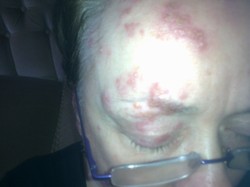The Sunflower is a fascinating bloom for apart from its beauty, the seeds of the flower are packed with a number of minerals and vitamins including Vitamin E, Vitamin C and Vitamin B. All three of these vitamins are an excellent source of nutrients which promote healthy hair and skin and also strengthens the heart and cells of the body.

Benefits of Sunflower Seeds
by suranee69
Sunflower seeds are a popular snack eaten around the world. Apart from its delicious taste, the seeds are also nutritious. Find out more about these amazing seeds in this article.
Types of Sunflower Seeds
There are two types of sunflower seeds: oilseed and non-oilseed.
Oilseed sunflower seeds are black in color and are used to make sunflower oil and sunflower meal. So what is sunflower meal? When oil is extracted from the oilseed variety of sunflower seeds a by-product is formed which is sunflower meal. The meal is used as livestock feed.
Non-oilseed sunflower seeds are the variety which is used in food or eaten raw. Non-oilseeds appear as black and white striped seeds.
Sunflower seeds produce three kinds of oil: linoleic, high oleic and NuSun. The difference in the three is due to the amount of oleic levels contained in each one.
How Much Sunflower Seeds to Eat?
Sunflower seeds are ideal snacks but always eat in moderation. Excess consumption of sunflower seeds can be harmful. Several articles on the internet suggest eating 1 cup or 2 tablespoons of sunflower seeds a day. My advice is to consult your health care provider/doctor for he would be the ideal person to let you know the proper amount.
Is it harmful to consume large amounts of sunflower seeds?
Sunflower seeds contain vitamin B6. Vitamin B6 is vital for our body for it helps to prevent anemia by aiding in the production of red blood cells. Vitamin B6 also stimulates the growth of white blood cells which is needed by the body to fight infection. But excess amounts of Vitamin B6 can harm the body causing nerve damage hence affecting the proper functioning of certain parts of the body e. g. muscle co-ordination, tingling sensation and numbness in hands and feet. A daily intake of 100 mg of Vitamin B6 is suggested to be safe but 200 mg or more is not.
Store-bought sunflower seeds contain a lot of salt whether it’s the roasted or unroasted kind. So take note of this when you’re eating sunflower seeds and choose the un-salted kind.
Sunflower seeds are also high in calories. 1 cup of sunflower seeds contains around 269 calories.
Benefits of Sunflower Oil
Apart from eating the seeds to maintain healthy skin and hair including a fit body, the oil too is beneficial. Some doctors are known to advise their patients especially those with cardiovascular problems to use sunflower oil in their cooking in place of other oil varieties.
Soaking in a warm bath which has ½ cup of sunflower oil added to it for 15 to 20 minutes will revitalize your skin. This is an ideal bath to soak in two times a week for those suffering from dry rough skin.
Sunflower oil mixed with sugar and applied on the wet skin during a shower or bath is an ideal scrub to get rid of dry flaky skin.
To make the scrub mix together 2 cups granulated sugar with 1 cup sunflower oil.
Wet the skin with warm water from the shower/bath. Massage the scrub in circular motions onto skin paying special attention to the neck, elbow, knees, thighs and feet. Leave the scrub on for 2 minutes on the skin after massaging before rinsing off with warm water.
You might also like
3 Best Blue Lotus Oils And Benefits That Wow YouBlue Lotus Oil is a powerful antiaging skincare product also known for its ca...
Look after your skin! Women AND MenOphthalmic shingles left me facially scarred but I often get comments about h...









 The Japanese Kimonoon 12/23/2012
The Japanese Kimonoon 12/23/2012
 Zumba Dance Workouton 12/23/2012
Zumba Dance Workouton 12/23/2012
 James Taylor and Ceylon Teaon 12/23/2012
James Taylor and Ceylon Teaon 12/23/2012
 Perfumes and Fragranceson 12/23/2012
Perfumes and Fragranceson 12/23/2012



Comments
I enjoy snacking on sunflower seeds too Mira but unfortunately it's not easy to find in stores here. You are welcome for the article and thank you for visiting and for commenting. From what I've read and been told by a few doctors 200 mg of Vitamin B6 is a bit too much for the body to handle.
Romanians always munch on sunflower seeds :-). Thank you for the useful comments in your article! Some supplements have 200+ mg of B6 -- you're saying it's too much, as I suspected; thank you for that.